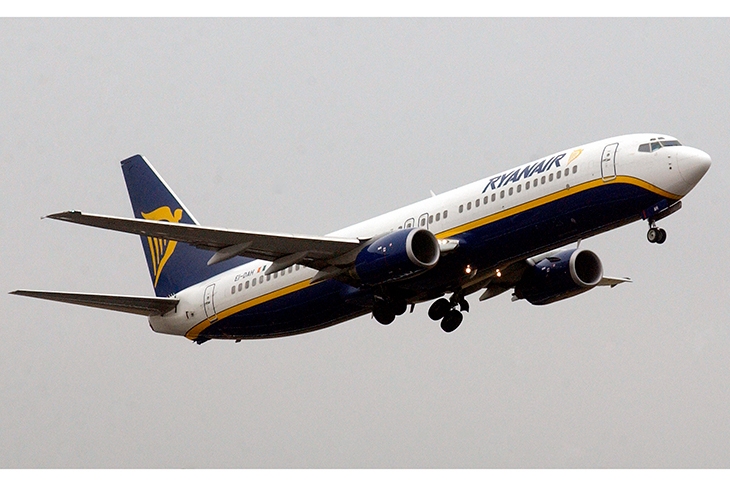Aviation, nuclear power and public transport — along with good restaurants, golden retrievers and hand-knitted bed socks — are, as Julie Andrews put it, a few of my favourite things. So in a week when the news is as depressing as I can remember since the dark winter of 1973-4, I might as well write about all of them. I’ll try to find points of light along the way but it’s not going to be easy.
First the plight of airlines, now so extreme that it’s hard to foresee any outcome other than nationalisation for many major carriers. Even if the new ban on leisure travel ends, only pre-flight Covid testing and reduced quarantine can boost passenger numbers in the short term, while transatlantic routes will take years to recover. Cargo traffic is the only bright spot. IAG, parent of British Airways, Iberia and Aer Lingus, is the test case: its losses for the first nine months of the year were €6.2 billion — almost €1 million an hour — on revenues down by three-quarters. Even after a €2.7 billion rights issue, survival without state bailout (in this case perhaps a triple one) must be in doubt.
And yet Ryanair managed to lose just €197 million in the six months to September. That’s equivalent to only a quarter of the personal fortune of chief executive Michael O’Leary, who says — amid his usual stream of expletives about governments — that he expects resurgent demand next summer and is looking forward to the delivery of 30 new Boeing aircraft. Already Europe’s leading airline by passenger numbers, having flown 152 million last year, this ruthless operation could stand as the continent’s last large-scale private-sector carrier. O’Leary once called himself ‘an obnoxious little bollocks’, but he’s a formidable cost-slasher and cartel-buster. Now more than ever, he’s the future of his industry.
Nuclear hope
Ministers are ‘close to giving the green light’ to a new nuclear power station at Sizewell in Suffolk, says the BBC. Electricity consumers should be glad, because however much offshore wind capacity it’s possible to create by 2030, we’ll need other clean sources to support it — and Sizewell is the last card, given the collapse of other nuclear projects and the unwelcome prospect of a Chinese one at Bradwell in Essex.
What’s more, by replicating the Hinkley Point station now being built in Somerset and redeploying its workforce, Sizewell would significantly average down the cost of nuclear output per megawatt hour. Hinkley and Sizewell between them could also reliably produce 14 per cent of UK power, making the Prime Minister’s aspiration to be ‘the Saudi Arabia of wind’ a lot less pie in the sky. Are we talking seriously sensible long-term infrastructure planning here? What could possibly go wrong?
No Crossrail miracle
The pandemic has left public transport in a bizarre crux, running at huge state cost to carry key workers while the populace at large is discouraged from using it. But it will be buses and trains, far more than bikes or e-vehicles, that will eventually bring crowds back to city centres and enable vacant shops and offices to be re-used in creative ways. I have recently rediscovered the Oxford Tube bus into central London, a super-efficient service which makes it almost unnecessary for anyone to drive a car into the capital via the M40. Yet the project with potential to reinvigorate the whole conurbation is still Crossrail — and loyal readers will know I’ve been monitoring its progress, first with wide-eyed enthusiasm and later with boiling irritation, for more than a decade.
The central section of Crossrail’s 70-mile east-west route was due to open in 2018 but is unlikely to do so before 2022. Already £4 billion over budget, what should have been celebrated as a mass-transit masterpiece has become a world-scale embarrassment for every minister, mayor and engineer associated with it. Its invisible and so far insuperable problem is incompatible signalling systems. But the visible, naked concrete tower of the stalled Bond Street station — where the main contractor, Costain Skanska, was stood down in June — is what offends me most. Progress towards ‘trial running’ of trains was reported last week, but we learned too that preparatory spend for the north-south Crossrail 2 route, which would amplify the scheme’s impact, has been halted as a condition of the latest bailout for Transport for London.
It’s hardly worth bothering to allocate blame for this colossal fiasco. Whoever they all are might be forgiven if it were possible to announce that Crossrail will open on Her Majesty’s 95th birthday, 21 April 2021 — which will also be the day when London is free of its last Covid restrictions. But that, I’m afraid, would require a double miracle.
A dog’s life
In that winter of 1973-4, I was an undergraduate at Oxford, where we made light of strikes, power cuts, inflation and hopeless politicians like Ted Heath. I don’t recall anyone saying ‘This is going to blight our whole lives’, which, in the end, it didn’t. I’m currently back in Oxford as an academic visitor at St Antony’s College and sensing some of that same resilient spirit of youth — not so much in battened-down university life but in the buzzing restaurants of Walton Street. Now they’re closed and facing another survival struggle: so if you’re in the vicinity, order a takeaway from Zheng or Mamma Mia.
What else did I promise to write about? Oh yes, bed socks: as I’ve said before, they cut fuel costs and guarantee extra sleep to help you through the most dismal of days. And golden retrievers, finest of lockdown companions. Mine — Douglas, an occasional comic presence in this column — is now elderly and often confused, not knowing which way to turn. Restaurateurs and small-business owners will recognise the likeness in a poem I once wrote about him: ‘Yes I’m that lovable sinner / who’s just stolen your dinner / the canine equivalent of Boris.’







Comments